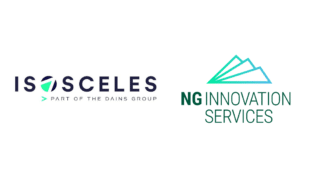ACA, ACCA, or CIMA? You’ll stumble across this confusing avalanche of acronyms if you are a graduate looking to pursue a career in accounting.
ACA, ACCA, and CIMA are all globally recognised accounting qualifications but they focus on different types of skills.
In this brief blog, we help the graduate accountant looking for a suitable graduate training programme understand what ACA, ACCA, and CIMA stand for in the accounting industry, the differences between these three qualifications, and shine a light on some of Isosceles’ recent graduate accountants.
Which is the right accounting qualification for you? ACA, ACCA and CIMA?
- The ACA (Associate Chartered Accountant) qualification is delivered by the ICAEW (Institute of Chartered Accountants in England and Wales)
- The ACCA qualification is delivered by the ACCA (The Association of Chartered Certified Accountants).
- The CIMA qualification is assessed by CIMA (Chartered Institute of Management Accountants)
How does the ACA qualification work?
The ACA qualification involves three years of on-the-job learning. This is also combined with the requirement to pass 15 exams. It is considered the most challenging of the three qualifications.
Alongside the 15 exams and 450 days of work experience (earned over a three-year qualification), trainees are expected to complete professional development and ethics.
Related article | How does a graduate become a chartered accountant?
How does the ACCA qualification work?
Similarly, the ACCA qualification requires completing practical work experience, 13 exams, and ethical modules.
Compared to the ACA qualification, trainee accountants have greater flexibility in terms of duration. The qualification allows full-time, part-time, distance learning, and online courses and greater availability of exam dates.
How does the CIMA qualification work?
The ACA and ACCA qualifications are very similar in terms of content. However, CIMA focuses on management accounting which emphasises financial accounting and reporting.
The CIMA qualification is respected within the accounting and finance industry, with many leading employers choosing to provide training for their employees using this method.
The professional CIMA qualification can take three years or longer depending on how much time is dedicated to studying.
The CIMA framework consists of several levels: Certificate, Operational, Management, and Strategic.
Related article | How does a graduate become a CIMA management accountant?
ACA vs ACCA?
Despite the similarities in the acronyms, there are key differences between the two qualifications worth highlighting.
Firstly, the structure of the course is different:
- The ACA has three levels (Certificate, Professional and Advanced) comprising 15 exams, split as six exams in the Certificate and Professional levels and three in the final Advanced level.
- In contrast, the ACCA has four levels: three Applied Knowledge exams, six Applied Skills exams, two Essentials exams, and two of four Options exams.
Secondly, in terms of content, the primary difference between the ACA and ACCA is that the ACA qualification is more appropriate for those working in practice, whilst the ACCA may be more suited to those working in industry.
Finally, another notable difference is the course length. If the goal is to become a professional accountant as soon as possible, ACCA is a shorter course; three years of hands-on practical experience as opposed to the ACA’s three to five years.
CIMA vs ACA and ACCA?
The ACA and ACCA qualifications do have some differences but are remarkably similar.
However, CIMA is noticeably different. CIMA places greater emphasis on management accounting, making it an attractive qualification for those planning to work in the industry.
Unlike the ACA, CIMA can be completed independently outside of a formal place of employment, increasing flexibility and allowing individuals to become fully qualified accountants without first being accepted by an employer.
Importantly, a CIMA trainee accountant will be closer to the day-to-day decisions and strategy of a business rather than the technical work associated with other tasks.
How to find a graduate training scheme
At Isosceles, we provide our trainee accountants with the support required to tackle these challenging qualifications. We are currently supporting members of the team who are completing ICAEW and CIMA qualifications and will begin our 2023 round of recruitment shortly. Come and have a look Isosceles Finance Graduate Recruitment 2023



